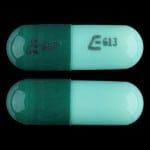Drug Class: Antihistamine
Table of Contents
- Overview
- How to Take It
- Side Effects
- Warnings & Precautions
- Drug Interactions
- Dosage & Missing a Dose
- Storage
- Pregnancy or Nursing
- More Information

Overview
Atarax (hydroxyzine) is an antihistamine used to treat itching, sneezing and runny nose from allergies. It is also used as a sedative to treat (short term) anxiety and tension. It is also used together with other medications given for anesthesia. Atarax is also used to treat allergic skin reactions, e.g., contact dermatitis or hives.
This information is for educational purposes only. Not every known side effect, adverse effect, or drug interaction is in this database. If you have questions about your medicines, talk to your health care provider.
It works by reducing activity in the central nervous system. It also acts as an antihistamine that reduces the natural chemical histamine in the body. Histamine can produce symptoms of sneezing and runny nose, or hives on the skin.
How to Take It
Follow the directions for using this medicine provided by your doctor. This medicine should be taken with a full glass of water. Continue to take this medicine even if you feel well. Do not miss any doses.
Side Effects
Side effects that may occur while taking this medicine include:
- dry mouth
- drowsiness
- blurred vision
- headache
- dizziness
- constipation
Contact your doctor immediately if you experience:
- seizures
- mental changes
- mood changes
- hallucinations
- shaking (tremor)
- facial swelling
- difficulty urinating
- confusion
- heartbeat that is fast or irregular
Warnings & Precautions
- Atarax may cause impaired thinking and reactions. DO NOT operate machinery or drive a vehicle until you know how you react to this medicine.
- Inform your doctor if you are allergic to Atarax, cetirizine, or levocetirizine. Let your doctor know if you have any other allergies.
- Talk with your doctor about any other medications you are taking that make you drowsy, including narcotic pain medicine, cold / allergy medicine, sedatives, sleeping pills, or muscle relaxers.
- Avoid alcohol while taking this medication. Alcoholic beverages can increase certain side effects of hydroxyzine.
- If you are taking the liquid form of this medication, use caution if you have liver disease, diabetes, or any other condition that requires you to limit/avoid sugar in your diet.
- For an overdose, seek medical attention immediately. For non-emergencies, contact your local or regional poison control center at 1-800-222-1222.
Drug Interactions
Before taking any new medicine, either prescription or over-the-counter, check with your doctor or pharmacist. This includes supplements and herbal products.
Dosage & Missed Dose
Take Atarax exactly as prescribed by your physician. Follow the directions on your prescription label. Carefully measure the dose using the included spoon if you are taking the liquid form of this medication.
If you skip a dose, take your next dose as soon as you remember. If it is time for your next dose, skip the missed dose and go back to your regular schedule. Do not double doses or take extra medicine to make up for the missed dose.
Storage
Keep this medication in the container it came in, tightly closed, and out of reach of children. Store it at room temperature and away from excess heat and moisture (preferably not in the bathroom). Throw away any medication that is outdated or no longer needed.
Pregnancy/Nursing
Consult with your doctor if you are pregnant. This medication could harm an unborn baby. Use effective birth control, and tell your doctor if you become pregnant during treatment. Talk to your doctor if you are planning to breast-feed your baby. It is not known if Atarax will pass into breast milk.
More Information
For more information, talk to your doctor, pharmacist or health care provider, or you can visit this website, https://www.nlm.nih.gov/medlineplus/druginfo/meds/a682866.html for additional information from the manufacturer of this drug.
